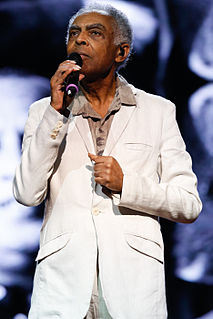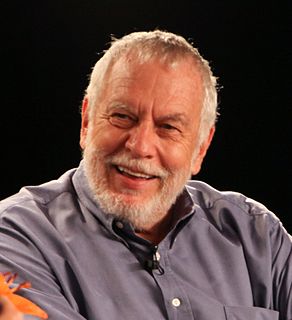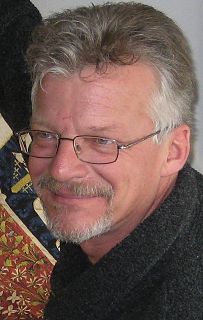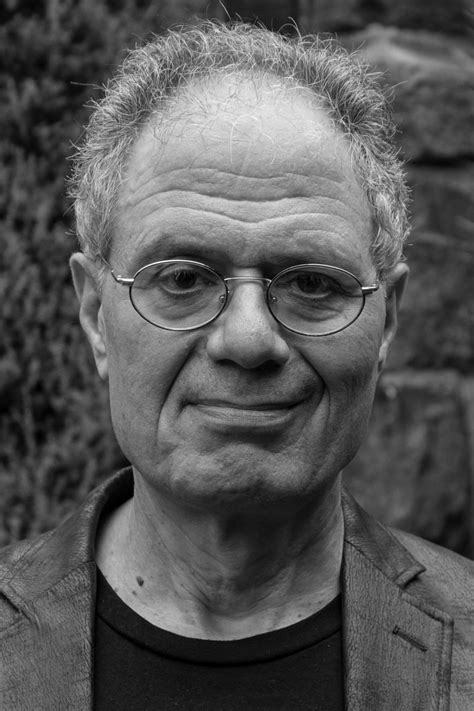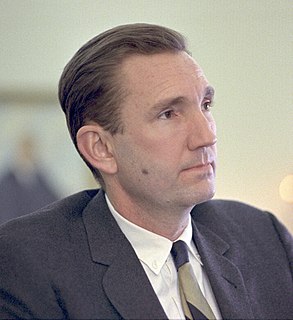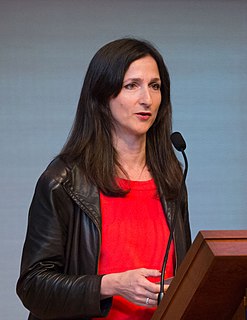Top 875 Technological Quotes & Sayings - Page 13
Explore popular Technological quotes.
Last updated on April 16, 2025.
I believe we are going to have to prepare ourselves for the difficult and patient task of outgrowing rigid and intransigent nationalism, and work slowly towards a world federation of peaceful nations. How will this be possible? Don't ask me. I don't know. But unless we develop a moral, spiritual, and political wisdom that is proportionate to our technological skill, our skill may end us.
It is a world completely rotten with wealth, power, senility, indifference, puritanism and mental hygiene, poverty and waste, technological futility and aimless violence, and yet I cannot help but feel it has about it something of the dawning of the universe. Perhaps because the entire world continues to dream of New York, even as New York dominates and exploits it.
This is not a new world - it is simply an extension of what began in the old one. It has patterned itself after every dictator who has ever planted the ripping imprint of a boot on the pages of history since the beginning of time. It has refinements...technological advances...and a more sophisticated approach to the destruction of human freedom. But like everyone of the super-states that preceded it - it has one iron rule: logic is an enemy and truth is a menace.
Our technological society has no longer any place in it for wisdom that seeks truth for its own sake, that seeks the fullness of being, that seeks to rest in an intuition of the very ground of all being. Without wisdom, the apparent opposition of action and contemplation, of work and rest, of involvement and detachment, can never be resolved.
My first book, 'To Engineer Is Human,' was prompted by nonengineer friends asking me why so many technological accidents and failures were occurring. If engineers knew what they were doing, why did bridges and buildings fall down? It was a question that I had often asked myself, and I had no easy answer.
Institutionalized desublimation thus appears to be an aspect of the "conquest of transcendence" achieved by the one-dimensional society. Just as this society tends to reduce, and even absorb opposition (the qualitative difference!) in the realm of politics and higher culture, so it does in the instinctual sphere. The result is the atrophy of the mental organs for grasping the contradictions and the alternatives and, in the one remaining dimension of technological rationality, the Happy Consciousness comes to prevail.
We live in an age where the rate of change has been colossal. Colossal. Almost every week there's some transformation of some kind, whether technological or political or scientific, whatever. And I think it's bewildering to human beings to live in a time when they can't take anything as fixed - when everything is shifting and changing all the time.
People from authoritarian, male-dominated, punitive families tend to vote for "strongman" leaders and for "hard" punitive policies (prisons, wars) rather than "soft" caring policies (healthcare, childcare). Not everyone from this background does. But many people do. And this conditioning can be exploited, as Trump's campaign did, especially in times like ours of economic, social, and technological upheaval.
Technological advances have always been driven more by a mind-set of 'I can' than 'I should' Technologists love to cram maximum functionality into their products. That's 'I can' thinking, which is driven by peer competition and market forces But this approach ignores the far more important question of how the consumer will actually use the device focus on what we should be doing, not just what we can.
When we look at modern man, we have to face the fact...that modern man suffers from a kind of poverty of the spirit, which stands in glaring contrast to his scientific and technological abundance; We've learned to fly the air like birds, we've learned to swim the seas like fish, and yet we haven't learned to walk the Earth as brothers and sisters.
Beginning in the sixties, but getting strong during the seventies and eighties, everybody was sort of Miles Davis and Chick Corea and the jazz guys on the west coast and east coast in America, and then in Switzerland and lots of groups in England and elsewhere, like here in Brazil. We were all under a heavy influence of technological gadgets and changes that we used as elements to produce and create music.
Today one can read the Gospel also on so many technological instruments. You can carry the whole Bible on your mobile phone, on your tablet. It is important to read the Word of God, by any means, but by reading the Word of God: Jesus speaks to us there! And welcome it with an open heart. Then the good seed will bear fruit!
It is no coincidence that a rebirth of psychedelic use is occuring as we acquire the technological capability to leave the planet. The mushroom visions and the transformation of the human image precipitated by space exploration are spun together. Nothing less is happening than the emergence of a new human order. A telepathic, humane, universalist kind of human culture is emerging that will make everything that preceded it appear like the stone age.
Silicon Valley, after all, feeds off the existence of computers, the internet, the IT systems, satellites, the whole of micro electronics and so on, but a lot of that comes straight out of the state sector of the economy. Silicon Valley developed, but they expanded and turned it into commercial products and so on, but the innovation is on the basis of fundamental technological development that took places in places like this [MIT] on government funding, and that continues.
Concern for the fate of the great rivers of the earth must lead us to reflect soberly on the model of development which our society is pursuing. A purely economic and technological understanding of progress, to the extent that it fails to acknowledge its intrinsic limitations and to take into consideration the integral good of humanity, will inevitably provoke negative consequences for individuals, peoples and creation itself.
We had some really powerful technology - Atari always was a technology-driven company, and we were very keen on keeping the technological edge on everything. There's a whole bunch of things that we innovated. We made the first computer that did stamps or sprites, we did screen-mapping for the very first time, and a lot of stuff like that.
The technological age we're in now is the perfect forum for constant misdirection and constant distraction. I ultimately think it's a war to keep people from realizing the true nature of themselves and the true nature of life. All the things people are in pursuit of now, in 2014, are total illusions. It just destroys people's happiness.
What is the appeal of Trump, really? It's nostalgic: "Make America great again." Like European nationalists, he has a vision of a "real" America, one which predates globalization, immigration, feminism, the civil rights movement and technological change, an imaginary 1950s to which we can now return. That is actually not very different from the kind of language that Marine Le Pen uses, or parts of the Brexit movement.
It turns out that advancing equal opportunity and economic empowerment is both morally right and good economics. Why? Because discrimination, poverty and ignorance restrict growth. We know that investments in education, infrastructure and scientific and technological research increase growth. They increase good jobs, and they create new wealth for all of us.
When I speak at my local church, which I try to do 35 to 40 times a year, I try in every lesson to take the Old Testament text or New Testament text and apply them to what is happening to me or how that applies to the audience that I'm teaching in a modern, fast-changing, technological world. I use headlines, interfaith and that sort of thing.
Some people think it's a law that when productivity goes up, everybody benefits. There is no economic law that says technological progress has to benefit everybody or even most people. It's possible that productivity can go up and the economic pie gets bigger, but the majority of people don't share in that gain.
I am grateful to the fossil fuel industry for bringing us the concentrated carbon that took us through the Industrial Revolution and through the technological revolution and brought us to the gateway of the renewable energy revolution, or what I call the sunlight revolution. But that is where we must part ways. It's the natural order.
We are contemporary citizens living in a technological world. Swimming in crosscultural waters can be dangerous, and if you are honest you can't stay there very long. Sooner or later you have to look at your own reflection and decide what to do with yourself. We are urban people. We make periodic pilgrimages to the country. . . . If we align ourselves with the spirit of place we will find humility fused with joy. The land holds stories.
Each sector of the border faces unique geographical, cultural and technological challenges that would be best addressed with a flexible, sector-by-sector approach that empowers the Border Patrol agents on the ground with the resources they need. What you need in San Diego is very different from what you need in Eagle Pass, Tex.
The world has changed far more in the past 100 years than in any other century in history. The reason is not political or economic but technological-technologies that flowed directly from advances in basic science. Clearly, no scientist better represents those advances than Albert Einstein: TIME's Person of the Century.
The technological overflow from scientific research has brought scientific research this bad name about carrying an irresponsibility and an alienation from God - because scientific research has led to things like the atom bomb, it's led to problems with depletion of ozone in the Earth's atmosphere, or at least it's revealed those problems.
Inability to accept the mystic experience is more than an intellectual handicap. Lack of awareness of the basic unity of organism and environment is a serious and dangerous hallucination. For in a civilization equipped with immense technological power, the sense of alienation between man and nature leads to the use of technology in a hostile spirit—-to the “conquest” of nature instead of intelligent co-operation with nature.
In volume and velocity, the new media are making available testimony on a previously unimaginable scale. I'm neither as romantic about the new media landscape, nor cynical. But what's indisputable is the experimental energy that digital forms are unleashing. Among my students and among up-and-coming artists, I find myself startled by the creative responses to the technological, environmental, and political upheavals of our time.
The aspirations of democracy are based on the notion of an informed citizenry, capable of making wise decisions. The choices we are asked to make become increasingly complex. They require the longer-term thinking and greater tolerance for ambiguity that science fosters. The new economy is predicated on a continuous pipeline of scientific and technological innovation. It can not exist without workers and consumers who are mathematically and scientifically literate.
Goddard represented a unique combination of visionary dedication and technological brilliance. He studied physics because he needed physics to get to Mars. In reading the notebooks of Robert Goddard, I am struck by how powerful his exploratory and scientific motivations were - and how influental speculative ideas, even erroneous ones, can be on the shaping of the future.
I would say the first key concept is that, in terms of technological and communication progress in human history, the Internet is basically the equivalent of electronic telepathy. We can now communicate all the time through our little magic smartphones with people who are anywhere, all the time, constantly learning what they're thinking, talking about, exchanging messages. And this is a new capability even within the context of the Internet.
After disasters, reproductive healthcare falls by the wayside. Yet babies continue to be born. When all infrastructure falls apart, when the hospitals and all their technological equipment are destroyed, midwives come in handy. They can help women give birth with or without electricity, running water, equipment - even shelter is optional. When babies are ready, they come.
To the philosophers of India, however, Relativity is no new discovery, just as the concept of light years is no matter for astonishment to people used to thinking of time in millions of kalpas, (A kalpa is about 4,320,000 years). The fact that the wise men of India have not been concerned with technological applications of this knowledge arises from the circumstance that technology is but one of innumerable ways of applying it.
The industrial-technological system may survive or it may break down. If it survives, it MAY eventually achieve a low level of physical and psychological suffering, but only after passing through a long and very painful period of adjustment and only at the cost of permanently reducing human beings and many other living organisms to engineered products and mere cogs in the social machine.
Holland's and Kauffman's work, together with Dawkins' simulations of evolution and Varela's models of autopoietic systems, provide essential inspiration for the new discipline of artificial life, This approach, initiated by Chris Langton (1989, 1992), tries to develop technological systems (computer programs and autonomous robots) that exhibit lifelike properties, such as reproduction, sexuality, swarming, and co-evolution.
We must work passionately and indefatigably to bridge the gulf between our scientific progress and our moral progress. One of the great problems of mankind is that we suffer from a poverty of the spirit which stands in glaring contrast to our scientific and technological abundance. The richer we have become materially, the poorer we have become morally and spiritually.
New investments in cyber security and the modernization of our military will spur substantial new job creation in the private sector and help create the jobs and technologies of tomorrow. It's what we have to do. America must be the world's dominant technological powerhouse of the twenty-first century, and young Americans - including in our inner cities - should get these new jobs!
Within a few decades, machine intelligence will surpass human intelligence, leading to The Singularity -- technological change so rapid and profound it represents a rupture in the fabric of human history. The implications include the merger of biological and nonbiological intelligence, immortal software-based humans, and ultra-high levels of intelligence that expand outward in the universe at the speed of light.
Modernity is the ensemble of changes - intellectual, political, economic, social, cultural, technological, aesthetic - that have altered the world drastically since roughly the 17th century, until which time the world was, in the above respects, far less different from the world of any previous epoch of recorded history than it is from the world of today. The modern predicament is the set of problems these changes have bequeathed us.
If man--if each one of us--abdicates his responsibilities with regard to values; if each one of us limits himself to leading a trivial existence in a technological civilization, with greater adaptation and increasing success as his sole objectives; if we do not even consider the possibility of making a stand against these determinants, then everything will happen as I have described it, and the determinates will be transformed into inevitabilities.
Some of the fantasy objects arising from cybernetic totalism (like the noosphere, which is a supposed global brain formed by the sum of all the human brains connected through the
internet) happen to motivate infelicitous technological designs.
For instance, designs that celebrate the noosphere tend to energize the inner troll, or bad actor, within humans.
In 1891, during the Presidency of William Henry Harrison [Benjamin Harrison], electric lights were first installed in the White House, the residence of the leaders of our country. At that time, commercial electricity was not economically feasible, but President Harrison wanted to affirm his confidence in the technological capability of our country.
Engineering is not merely knowing and being knowledgeable, like a walking encyclopedia; engineering is not merely analysis; engineering is not merely the possession of the capacity to get elegant solutions to non-existent engineering problems; engineering is practicing the art of the organizing forces of technological change ... Engineers operate at the interface between science and society.
Based on technological research and the transformation of nature, industrialization constantly goes forward, giving proof of incessant creativity. While certain enterprises develop and are concentrated, others die or change their location. Thus new social problems are created: professional or regional unemployment, redeployment and mobility of persons, permanent adaptation of workers and disparity of conditions in the different branches of industry.
These new investments in cyber security and the modernization of our military will spur substantial new job creation in the private sector and help create the jobs and technologies of tomorrow. It's what we have to do. America must be the world's dominant technological powerhouse of the twenty-first century, and young Americans - including in our inner cities - should get these new jobs!
If you look at say, England and Germany a century ago, which had the most advanced navies then, they were dealing with extremely tricky technological problems. Putting a huge gun on a moving platform and ensuring that it could hit another moving target was one of the hardest technical problems of the early twentieth century.
In many places, above all in the Anglo-Saxon countries, logistics is today considered the only possible form of strict philosophy, because its result and procedures yield an assured profit for the construction of the technological universe. In America and elsewhere, logistics as the only proper philosophy of the future is thus beginning today to seize power over the intellectual world.
It has never happened in history that a nation that has won a war has been held accountable for atrocities committed in preparing for and waging that war. We intend to make this one different. What took place was the use of technological material to destroy a defenseless country. From 125,000 to 300,000 people were killed... We recognize our role in history is to bring the transgressors to justice.
I think it's very easy for people who are not deep in the technology itself to make generalizations, which may be a little dangerous. And we've certainly seen that recently with Elon Musk, Bill Gates, Stephen Hawking, all saying AI is just taking off and it's going to take over the world very quickly. And the thing that they share is none of them work in this technological field.
Technological consciousness takes itself dead seriously; it has no sense of humor. The fool can play no role in it, for there is no other realm that is can see beyond itself to which the fool can point. Consciousness in the throes of desire cannot tolerate laughter any more than criticism of laughter can be tolerated in a moment of sexual lust.
Scientists tell us that we have enough technology to save our planet. . . . Yet we don't take advantage of this new technology. . . . The technological has to work hand-in-hand with the spiritual. Our spiritual life is the element that can bring about the energies of peace, calm, brotherhood, understanding, and compassion. Without that, our planet doesn't stand a chance.
Science fiction is the branch of literature that deals with the effects of change on people in the real world as it can be projected into the past, the future, or to distant places. It often concerns itself with scientific or technological change, and it usually involves matters whose importance is greater than the individual or the community; often civilization or the race itself is in danger.
The early entrants into the world of A.R., as with its cousin virtual reality, were disappointing: the phones were too weak, the networks were too slow, and the applications were too nerdy. But now the technological pieces are in place, and a whole generation - much of which is on Snapchat - has come to consider the camera almost a third arm.
In a world facing the revolt of ragged and hungry masses of God's children; in a world torn between the tensions of East and West, white and colored, individuals and collectivists; in a world whose cultural and spiritual power lags so far behind her technological capabilities that we live each day on the verge of nuclear co-annihilation; in this world, nonviolence is no longer an option for intellectual analysis, it is an imperative for action
We stand on a great threshold in the human history of space exploration. If life is prevalent in our neighborhood of the galaxy, it is within our resources and technological reach to be the first generation in human history to finally cross this threshold, and to learn if there is life of any kind beyond Earth.
When the industrial revolution happened there was the Luddistic movement, and there was a fear that machinery would replace all the labor. Whenever we had a technological revolution we had this fear. So if you look backwards, these fears were not justified, and I think they were driven by our very human inability to visualize what new jobs will be created by this new technology.










